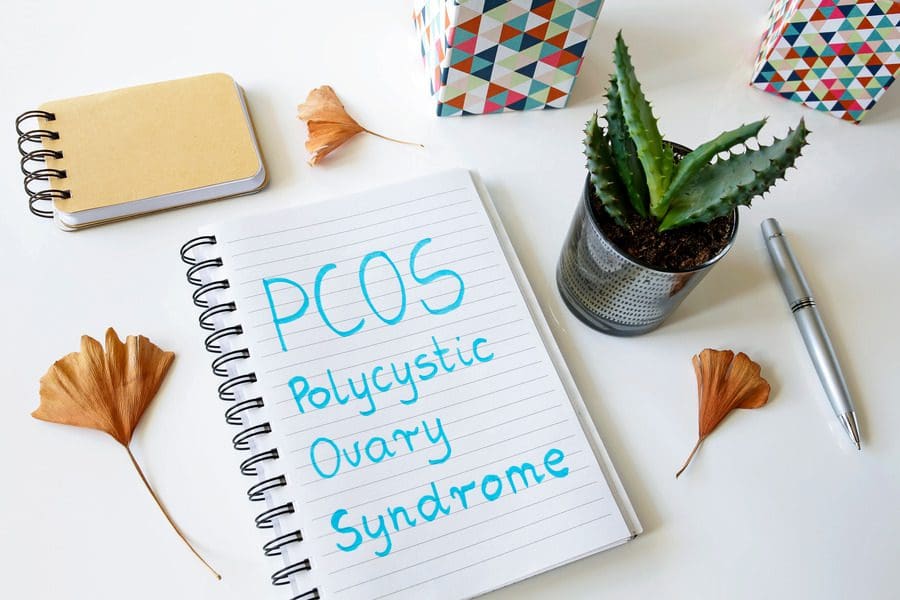An estimated 5 million to 6 million women in the United States suffer from PCOS (polycystic ovarian syndrome), a hormonal imbalance that can cause health complications and unwanted side effects. It is the most common hormonal disorder among women of childbearing age, yet many aren’t aware they have it. Here, we’ll discuss what exactly PCOS is, what causes it, its signs and symptoms, and treatment options.
Understanding PCOS
According to the Endocrine Society, PCOS affects approximately 7%–10% of women of childbearing age and is one of the most common causes of infertility.
PCOS affects a woman’s ovaries, which produce estrogen and progesterone, hormones that regulate menstrual cycles. Polycystic means many cysts, but with PCOS, the “cysts” are actually small follicles containing immature eggs that never develop. Since ovulation isn’t triggered, the estrogen, progesterone, FSH, and LH levels become altered, and androgen levels become higher than usual.
Signs and Symptoms
Some women notice symptoms as early as puberty, but others are unaware they have it until they experience rapid weight gain or struggle to get pregnant. Common signs and symptoms of PCOS are:
- Irregular periods due to not ovulating, at times leading to eight or fewer periods in a year, if any.
- Heavy periods caused by the buildup of the uterine lining.
- Unwanted hair growth (hirsutism) on the face and body, including the back, stomach, chest, and face.
- Increased male hormones, which can cause oily skin, leading to breakouts on the face, chest, and upper back.
- Approximately 80% of women with PCOS experience weight gain.
- Hair thinning and falling out (male-pattern baldness).
- Headaches because of hormonal changes.
- Increased chances of endometrial cancer.
Causes of PCOS
Currently, the cause of PCOS is unknown; however, it seems to be inherited: Family members of someone with PCOS are at higher risk of developing the syndrome. Environmental factors such as rapid weight gain, low birth weight, early puberty, and childhood or adulthood obesity may also contribute.
Insulin Resistance
Often, women with PCOS have insulin resistance. Insulin is a hormone produced by the pancreas that helps the body process sugar. Women who are obese are also at a higher risk of insulin resistance, which, combined with PCOS, can increase the chances of developing type 2 diabetes.
Diagnosis and Treatment
If you suspect you may have PCOS, speak with a medical professional. A pelvic exam, blood work, and, sometimes, an ultrasound are needed to properly diagnose. Birth control can help treat symptoms of PCOS, along with medication for diabetes and fertility, if necessary.
Have you or someone you know experienced PCOS? Share your story with us in the comments below!






